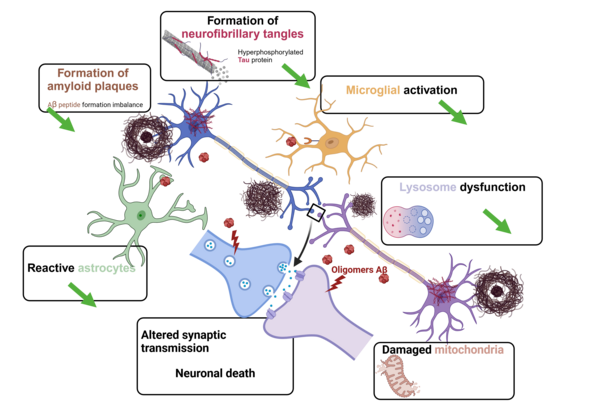Proteostasis modulators and Alzheimer’s Disease
Alzheimer's disease is a multifactorial, slowly progressing disorder characterized by two key pathological mechanisms : amyloid deposition and Tau tangles. Alongside these, various dysfunctions such as neuroinflammation and cell death are observed. Current treatments in clinical trials primarily target one of these processes or aim to alleviate symptoms, without addressing the full complexity of the disease.
In recent years, through phenotypic screening, we have developped a ligand-based strategy nad built a pharmacophore model. This model has enabled us to identify and optimize several families of compounds able to modulate APP metabolism and mitigate Tau pathology. These compounds have been shown to improve cognitive deficits in transgenic mouse models of both hippocampal Tau and amyloid pathologies, while reducing neuroinflammation and restoring protein homeostasis.
To date, Ezeprogind (AZP2006), the most advanced compound in our pipeline, is completing Phase II clinical trials for the treament of PSP. This compound is being developed by AlzProtect, a spin-off company from our Research Center.


